Editor’s Note: The Ujima Peoples Progress Party (UPP), under the leadership of Bro. Nnamdi Lumumba, has been organizing in the Baltimore, Maryland area for the past several years as they seek to establish a Black worker-led independent political party in the state of Maryland, and to inspire the building of a Black-led political party on the national level ion the United States.
People of Afrikan descent in the US have found ourselves played off between a Democratic Party that speaks of equality, the right to protest, “Black Lives Matter” and Black political power but often ignores us and “takes us for granted” to support the corporate and political capitalist elites when concrete action is needed, and a Republican Party that makes claims to be the original anti-slavery “party of Lincoln” but, through its local and national policies of corporate welfare, defunding of social services, voter suppression and law-and-order repression, instead abuses us every day. Both parties have historically pursued a global agenda of endless war and repression of people’s movements (including coups d’etat that often featured the murder and overthrow of elected leaders) to facilitate the stripping of the resources of other countries, again for the benefit of corporate and political capitalist elites. The need for an independent political voice that truly represents the people is clear, and UPP has been working hard to develop and build that voice for Black people, starting in the state of Maryland.
The latest effort by UPP to connect the community with activists and thought leaders in the area of building independent political voices is their participation in and co-sponsorship of the “Break the Grip of the Two-Party System” Conference, to be held virtually on September 19-20. This is being done as a cooperative effort with Labor and Community for an Independent Party (LCIP) and the Labor Fightback Network.
Ujima Peoples Progress Party Official Announcement of the
Break the Grip of the Two-Party System Conference
September 19-20, 2020
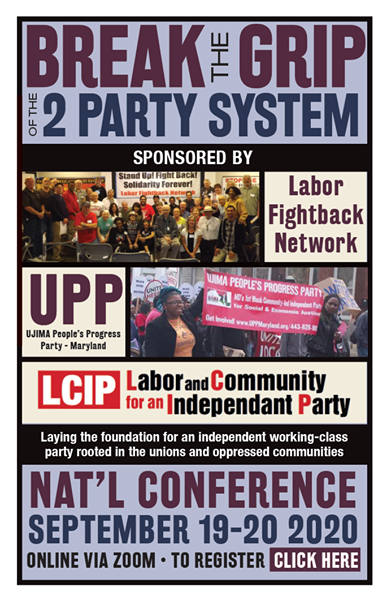 Sponsored by: Labor and Community for an Independent Party (LCIP), Ujima Peoples Progress Party (UPP), Labor Fightback Network
Sponsored by: Labor and Community for an Independent Party (LCIP), Ujima Peoples Progress Party (UPP), Labor Fightback Network
The Ujima People’s Progress Party is a co-sponsor for this important event. This online conference was initially planned to happen in Baltimore but due to the COVID-19 crisis was moved online.
This conference is a part of our overall work to win Black workers and other working class people away from the influence and support for the two imperialist-capitalist parties AND the influence of the neo-colonial stooges which serve the ruling class in liberal or conservative forms.
As independent Black political action has begun to consolidate its goals and organization in this era, the need for unions and other working class organizations to have a principled relationship to our movement has grown. This is a part of the process of us talking to other forces about how to properly work together.
Please register to attend one or more of these discussions, there are two specific panels that tie directly to the work of colonized peoples and our struggle for independence and national liberation. Comrade Nnamdi of Ujima will be a facilitator of one of these panels as well as comrade Khalid Raheem from Pittsburgh who leads the New Afrikan Independence Party work.
https://zoom.us/meeting/register/tJEvcu2gqD0uGN0rcvUdae8EvdLYpfZUnhIx
See the call to action statement and more info below:
Call to the “Break the Grip of the Two-Party System” National Online Conference (September 19-20, 2020)
Millions of workers and youth have taken to the streets since police officers in Minneapolis assassinated George Floyd. Despite the COVID-19 restrictions, they took to the streets in ever-growing mass protests — forging an insurgent movement not seen in many decades — to demand an end to police terror and systemic racism. Enough is enough, they proclaimed.
In Oakland, Calif., on Juneteenth, a march organized by International Longshore and Warehouse Union (ILWU) Locals 10 and 34 made a stop at the Oakland Police Department. Community activists, including former political prisoners, spoke about their experiences with the Oakland police. Thousands chanted, “No Justice, No Peace — No Racist Police!”
As the COVID-19 pandemic continues to rage across the United States, a resurgent, fighting spirit has flared up among frontline workers deprived of protective gear and measures essential to ensure their safety and that of their families and broader communities. Their daily struggle has amplified the resistance of workers across the country — teachers, autoworkers, and others — who over the past few years have been fighting to take back their unions and fend off the bosses’ assault on their rights, wages, benefits, and working conditions.
In oppressed communities across the United States, the same fighting spirit continues to take on police brutality, mass incarceration (targeting Black and Brown people disproportionately), gentrification and evictions, environmental injustice, and attacks on immigrants. In many cases, these movements overlap and support each other.
With inequality skyrocketing, healthcare costs and student debt mounting, climate change roiling the planet, democratic and civil rights (especially voting rights) under increased assault, wages and benefits evaporating, as well as gentrification and the lack of affordable housing on the rise, a majority in the United States (57%) have called for a new independent political party. (Gallup Headlines, July 19, 2019)
Now the crisis confronting the working class and communities of the oppressed will deepen under the impact of the economic and social shutdown that has been imposed to mitigate the spread of the novel coronavirus. How will working people pay the accumulated debts from unpaid rent, mortgages and other loans, as well as costly utilities? Will we be confronted with the unacceptable choice of paying astronomical increases in healthcare insurance or losing coverage?
We know full well that it is the working class and communities of the oppressed who will bear the brunt of the corporate bailout – disguised as a stimulus package – as Democratic and Republican politicians declare that there are no more public funds available and as bosses maneuver to break union contracts and coerce the rollback of wages and benefits.
Unfortunately, most of the leaders of the trade unions and of many organizations representing oppressed nationalities remain to this day tied at the hip to the Democratic Party — a party that implements the permanent war agenda of global capitalism. This relationship is the number one obstacle to building working-class power and advancing the interests of the working class and all oppressed people.
A bolder worker fightback is essential.
New Openings for Independent Working-Class Politics
More than 700 leading labor and community activists have endorsed a Statement of Purpose — at the initiative of Labor and Community for an Independent Party (LCIP) — that calls for running independent labor-community candidates at the local and state level, as a step in the effort to build a new independent mass labor-based political party.
These candidates — mandated by local labor-community coalitions — are not limited to electoral politics; they must be fighting for the issues contained in their fightback platforms. This will help to cement the alliance between labor and the oppressed communities.
An important step has been taken to promote this orientation, with the convening of the “Break the Grip of the Two-Party System” regional conference on December 7, 2019, in Cleveland, OH, sponsored by the Labor Education and Arts Project (LEAP), in cooperation with the Labor Fightback Network (LFN), and LCIP.
In keeping with these developments, the LFN, the Ujima People’s Progress Party (a Black-led party based in Baltimore), and LCIP are convening an online national conference for independent working-class politics.
Such a national conference, of course, needs to incorporate the fight for independent Black working-class political action. Nnamdi Lumumba, convener of the Ujima People’s Progress Party, expressed well the articulation of the struggle for independent Black working-class politics and for a Labor-based party at the December “Break the Grip” conference in Cleveland, stating:
“We need to organize people around their own class interests and their own interests as nationally oppressed people. Helping to break the active or even passive support to the two capitalist, imperialist and white supremacist parties has been a fundamental goal of our efforts as the Ujima People’s Progress Party, as we seek to build a Black workers-led electoral party.
“While we support a national labor party that recognizes both the shared and independent struggles of oppressed and exploited workers on the job and in their communities, we affirm that nationally oppressed people have to center the discussion and self-organization around their own specific oppression. … Having said that, we need to create a mass-based working-class party that says capitalism does not serve you, imperialism does not serve you, and racism does not serve you.”
ILWU Local 10 retiree Clarence Thomas summed it up best when he noted that now is the time to point the way forward for independent working-class political action. “We have to strike while the iron is hot,” he stated.
If you agree with this call, please join us at the “Break the Grip of the Two-Party System” online conference on September 19-20. The conference Program Agenda is included below. The list of speakers will be sent out shortly.
Following is the registration link to the conference:
https://zoom.us/meeting/register/tJEvcu2gqD0uGN0rcvUdae8EvdLYpfZUnhIx
* * * * * * * * * * *
Break the Grip of the Two-Party System Program Agenda
Saturday, September 19, 2020 2 PM EST/11 AM PST
Introduction/Q&A: 2:00 -2:25 EST
LCIP Opening Panel Discussion/Q&A: 2:25-2:51 EST
BREAK: 2:51-3:10 EST
Intro to breakout rooms: 3:10-3:20 EST
First Breakout Sessions: 3:20-5:20 EST
a. Breakout room #1: Title: LCIP’s Relationship to Organizing with Working-Class Communities to Combat White Supremacy and End Systemic Racism
b. Breakout room #2: Title: LCIP’s Relationship to Migrant Workers and Immigrant Workers, Families, and Students
c. Breakout room #3: Title: LCIP’s Relationship to the Anti-war and Anti-imperialist movement(s)
Panel/Q&A Why We Endorse/Support LCIP: 5:20–5:50 EST
Overview of Sunday’s Program & Breakout Groups: 5:50-6:00 EST
Sunday, September 20, 2020 2 PM EST/11 AM PST
Introduction: 2:00 -2:15 EST
Second Breakout Sessions: 2:15-3:15 EST
a. Breakout room #4: LCIP’s Relationship to Independent Political Action and Defending the Right to Self-Determination for Oppressed Communities of Color
b. Breakout room #5: LCIP’s Relationship to the Women’s Right’s Movement
c. Breakout room #6: LCIP’s Relationship to the Labor Movement
Report back from Saturday Breakout Session 1 & recommendations to LCIP on how to proceed: 3:15-4:00 EST
BREAK: 4:00-4:15 EST
Report back from Sunday morning Breakout Sessions: 4:15-5:00 EST
Plenary session, Organizing LCIP Going Forward: 5:00-5:40 EST
Closing remarks: 5:40-6:00 EST
Like this:
Like Loading...
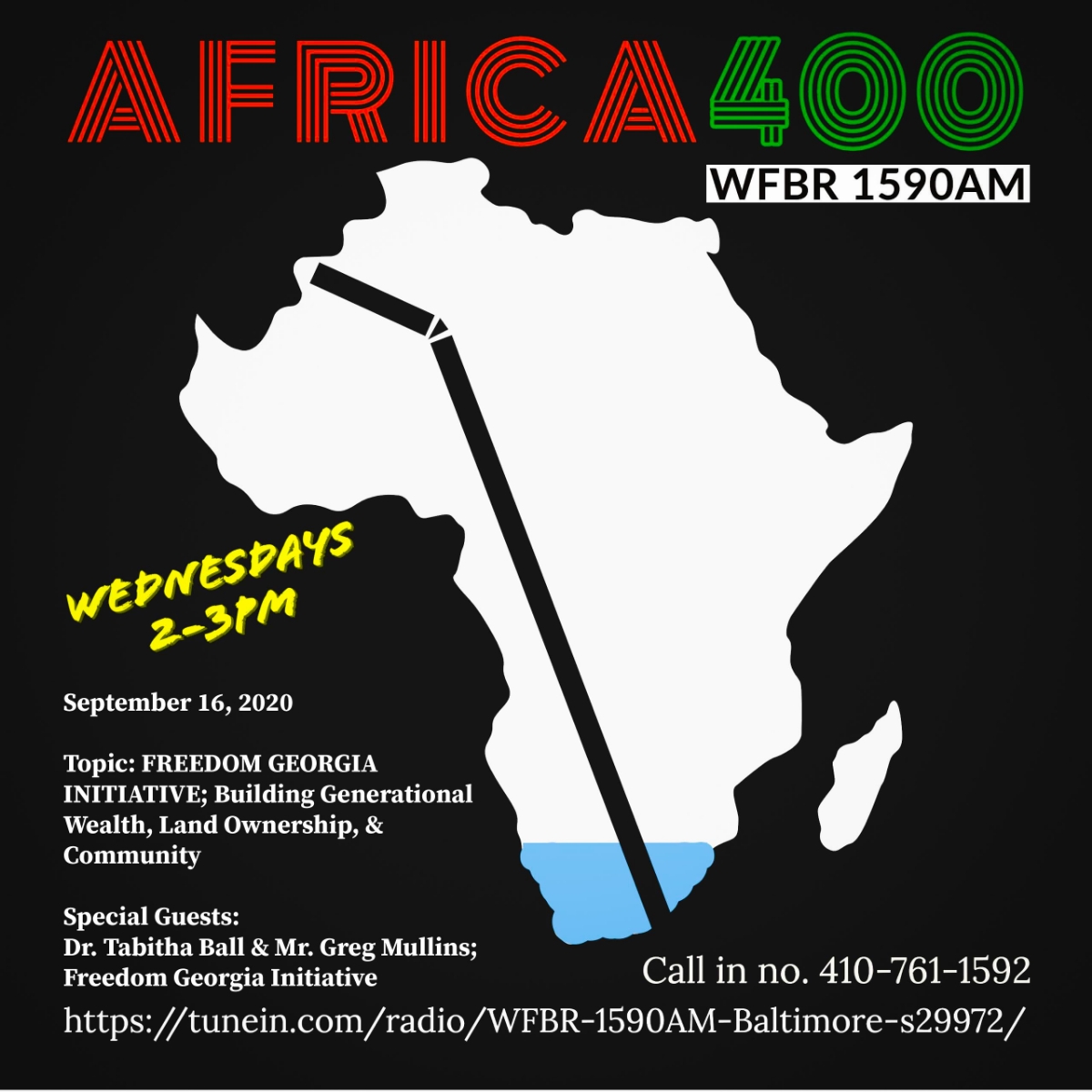 The Wednesday, September 16, 2020 edition of Africa400 examines the Freedom
The Wednesday, September 16, 2020 edition of Africa400 examines the Freedom 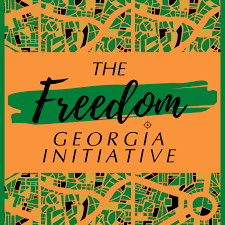 Georgia Initiative. Hosts Mama Tomiko and Baba Ty welcomed guests Dr. Tabitha Ball and Mr. Greg Mullins of the Freedom Georgia Initiative.
Georgia Initiative. Hosts Mama Tomiko and Baba Ty welcomed guests Dr. Tabitha Ball and Mr. Greg Mullins of the Freedom Georgia Initiative.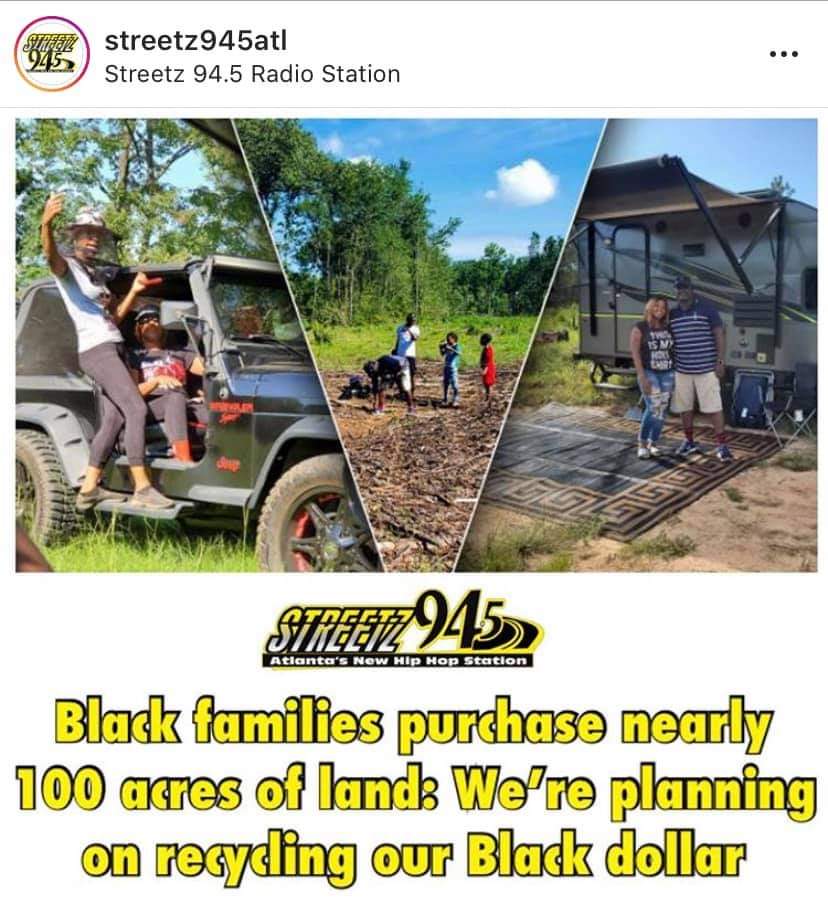


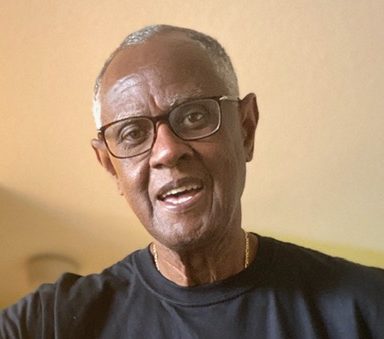 events that have been held over the years by Congress Member Karen Bass (D-California), who is also the current leader of the Congressional Black Caucus (CBC). Mr. Foote has been engaged in lobbying US government officials and international businesses to take a more Afrika-friendly approach to their activities for several decades, choosing to do much of his work “on the inside” to influence policy and practice. Mr. Foote has always approached discussions with Pan-Afrikan activists and fellow concerned Afrikan Diasporans in a positive and cordial manner, and he has often been receptive to a variety of viewpoints regarding the liberation and uplift of Afrikan people. Though he has interacted with more political and corporate types than many activists would care to, he has been a committed, hard-working advocate for Afrikan people for the decades I have known of him and his work.
events that have been held over the years by Congress Member Karen Bass (D-California), who is also the current leader of the Congressional Black Caucus (CBC). Mr. Foote has been engaged in lobbying US government officials and international businesses to take a more Afrika-friendly approach to their activities for several decades, choosing to do much of his work “on the inside” to influence policy and practice. Mr. Foote has always approached discussions with Pan-Afrikan activists and fellow concerned Afrikan Diasporans in a positive and cordial manner, and he has often been receptive to a variety of viewpoints regarding the liberation and uplift of Afrikan people. Though he has interacted with more political and corporate types than many activists would care to, he has been a committed, hard-working advocate for Afrikan people for the decades I have known of him and his work.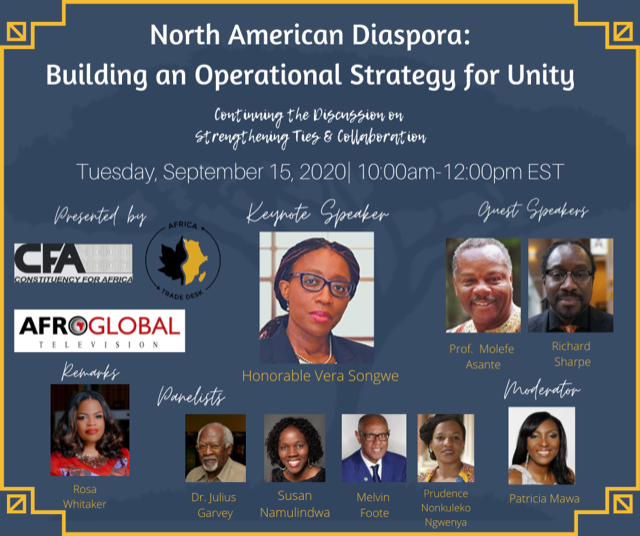 The keynote speaker for this September 15th forum will be the Honorable Vera Songwe, the Executive Secretary for the United Nations Economic Commission for Africa, based in Addis Abeba. Ms. Songwe will be introduced by the Hon. Rosa Whitaker, the President of the Whitaker Group, based in Accra, Ghana and Washington. The forum will also feature the acclaimed scholar, Dr. Molefi Kete Asante, Professor and Chair, of the Department of Africology at Temple University in Philadelphia, and the Co-Founder of the Afrocentricity International.
The keynote speaker for this September 15th forum will be the Honorable Vera Songwe, the Executive Secretary for the United Nations Economic Commission for Africa, based in Addis Abeba. Ms. Songwe will be introduced by the Hon. Rosa Whitaker, the President of the Whitaker Group, based in Accra, Ghana and Washington. The forum will also feature the acclaimed scholar, Dr. Molefi Kete Asante, Professor and Chair, of the Department of Africology at Temple University in Philadelphia, and the Co-Founder of the Afrocentricity International.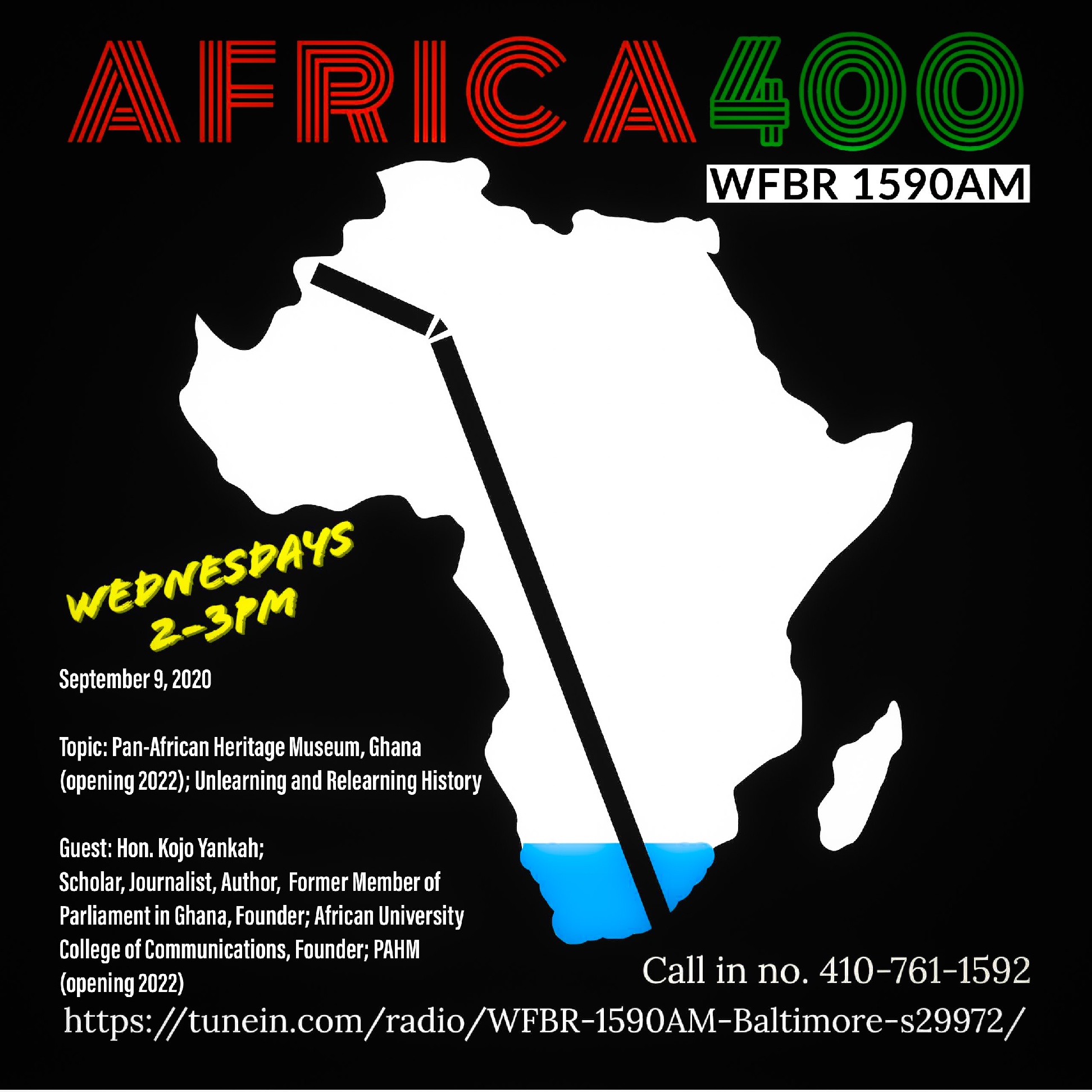 The Wednesday, September 9, 2020 edition of Africa400 discusses the upcoming
The Wednesday, September 9, 2020 edition of Africa400 discusses the upcoming 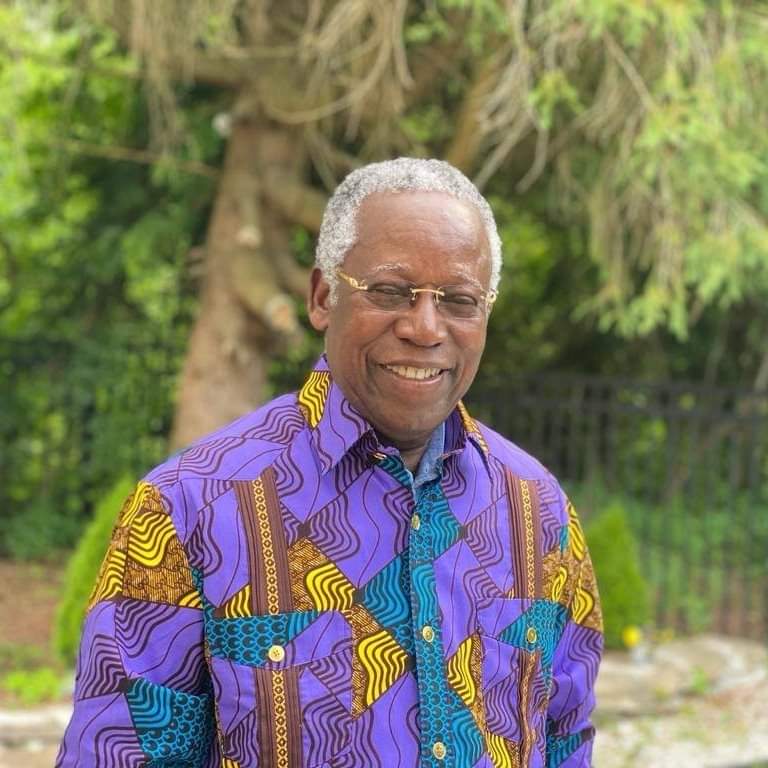 Pan African Heritage World Museum (PAHWM) in Ghana and the topic of Unlearning and Relearning History. Mama Tomiko and Baba Ty’s guest is the Honorable Kojo
Pan African Heritage World Museum (PAHWM) in Ghana and the topic of Unlearning and Relearning History. Mama Tomiko and Baba Ty’s guest is the Honorable Kojo 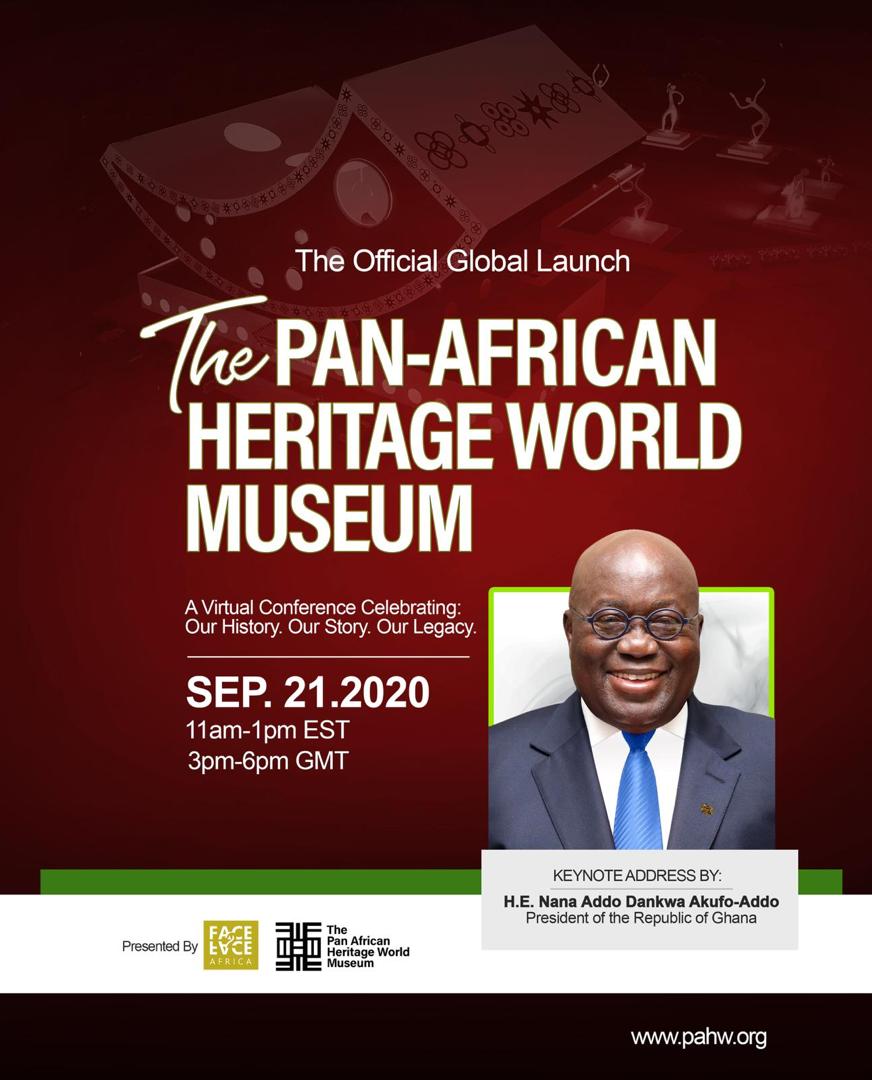 Yankah, scholar, journalist, author, former member of Parliament in Ghana, and the Founder of the African University College of Communications and the Pan African Heritage World Museum (PAHWM) which will open in 2022.
Yankah, scholar, journalist, author, former member of Parliament in Ghana, and the Founder of the African University College of Communications and the Pan African Heritage World Museum (PAHWM) which will open in 2022.

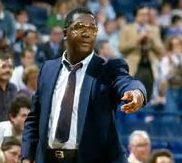 Coach John Thompson
Coach John Thompson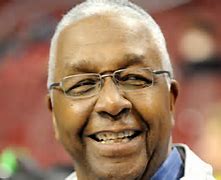 He also demonstrated his commitment to principles when he walked off the court at the start of a game to protest Propositions 42 and 48, which restricted college basketball scholarships in a way that disadvantaged Black players especially (the dependence on SAT scores to determine scholarship eligibility was particularly problematic because of the test’s cultural biases). He also put his money (or, rather, his well-being) on the line when he met with then-notorious local drug kingpin Rayful Edmond III in 1989 to tell him to stay away from his players. Edmond reportedly never associated with Georgetown players again after that meeting.
He also demonstrated his commitment to principles when he walked off the court at the start of a game to protest Propositions 42 and 48, which restricted college basketball scholarships in a way that disadvantaged Black players especially (the dependence on SAT scores to determine scholarship eligibility was particularly problematic because of the test’s cultural biases). He also put his money (or, rather, his well-being) on the line when he met with then-notorious local drug kingpin Rayful Edmond III in 1989 to tell him to stay away from his players. Edmond reportedly never associated with Georgetown players again after that meeting.  The “Black Panther”, Chadwick Boseman
The “Black Panther”, Chadwick Boseman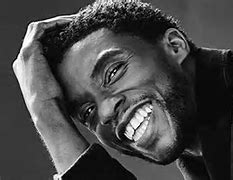 Needless to say, the expressions of shock and sympathy from the general public as well as the stars of Hollywood came in a flood. Family members of the historic figures he portrayed in film expressed their condolences and their appreciation of his career, most notably the family of Jackie Robinson. Most of us will be most impacted by his performance as T’Challa, the king of the fictional Afrikan nation of Wakanda, for the strong vision of Afrikan unity, Afrikan genius, and Afrikan leadership and morality he and the other actors portrayed. Many of us would become emotional when watching his seminal superhero movie. I imagine it will be much more the case now. A heartfelt Wakanda Salute to New Ancestor Chadwick Boseman, who left us at the shockingly young age of 43.
Needless to say, the expressions of shock and sympathy from the general public as well as the stars of Hollywood came in a flood. Family members of the historic figures he portrayed in film expressed their condolences and their appreciation of his career, most notably the family of Jackie Robinson. Most of us will be most impacted by his performance as T’Challa, the king of the fictional Afrikan nation of Wakanda, for the strong vision of Afrikan unity, Afrikan genius, and Afrikan leadership and morality he and the other actors portrayed. Many of us would become emotional when watching his seminal superhero movie. I imagine it will be much more the case now. A heartfelt Wakanda Salute to New Ancestor Chadwick Boseman, who left us at the shockingly young age of 43.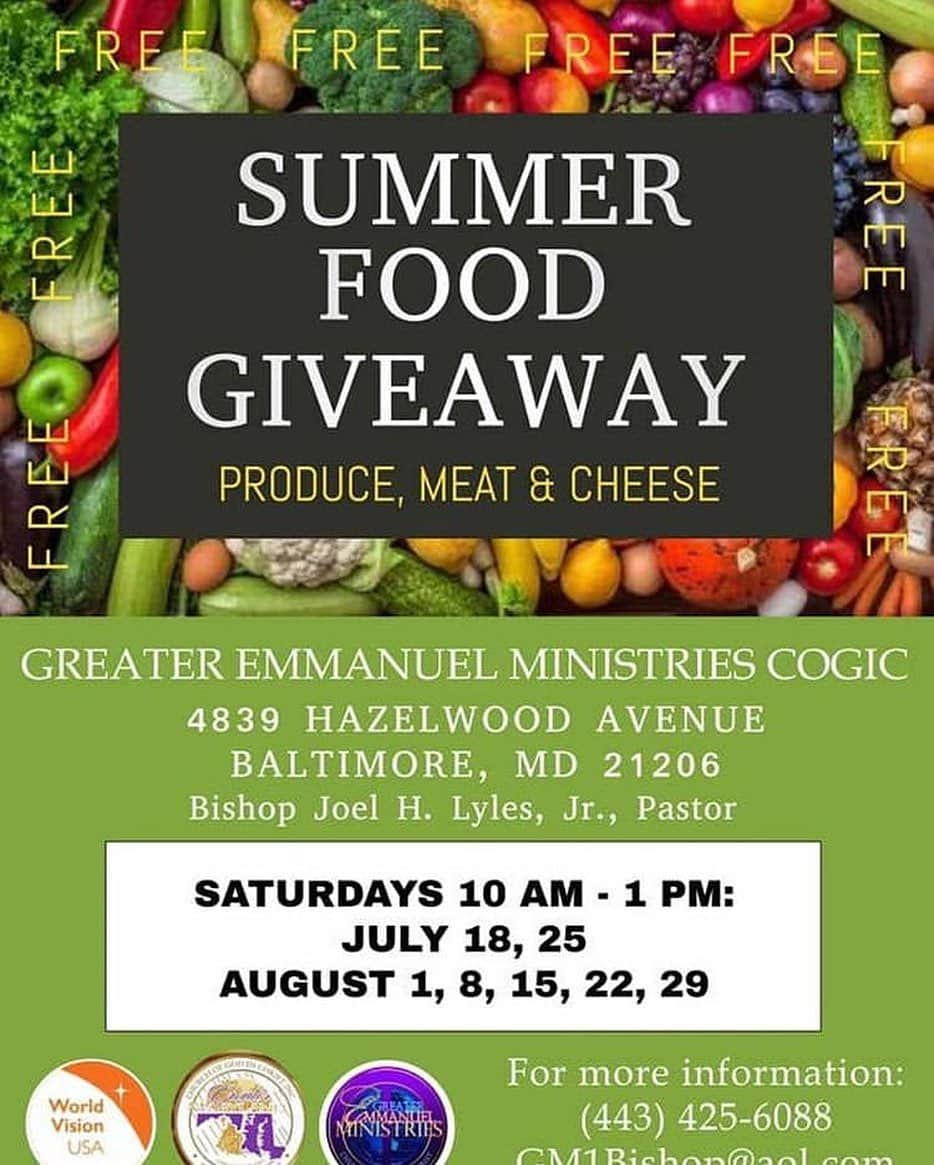
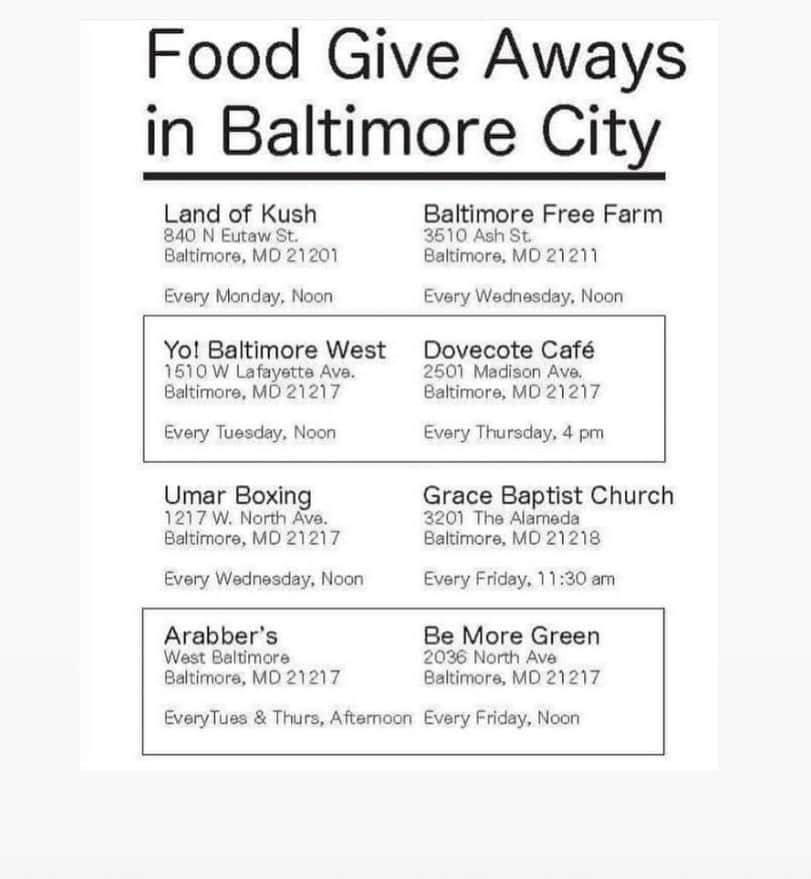
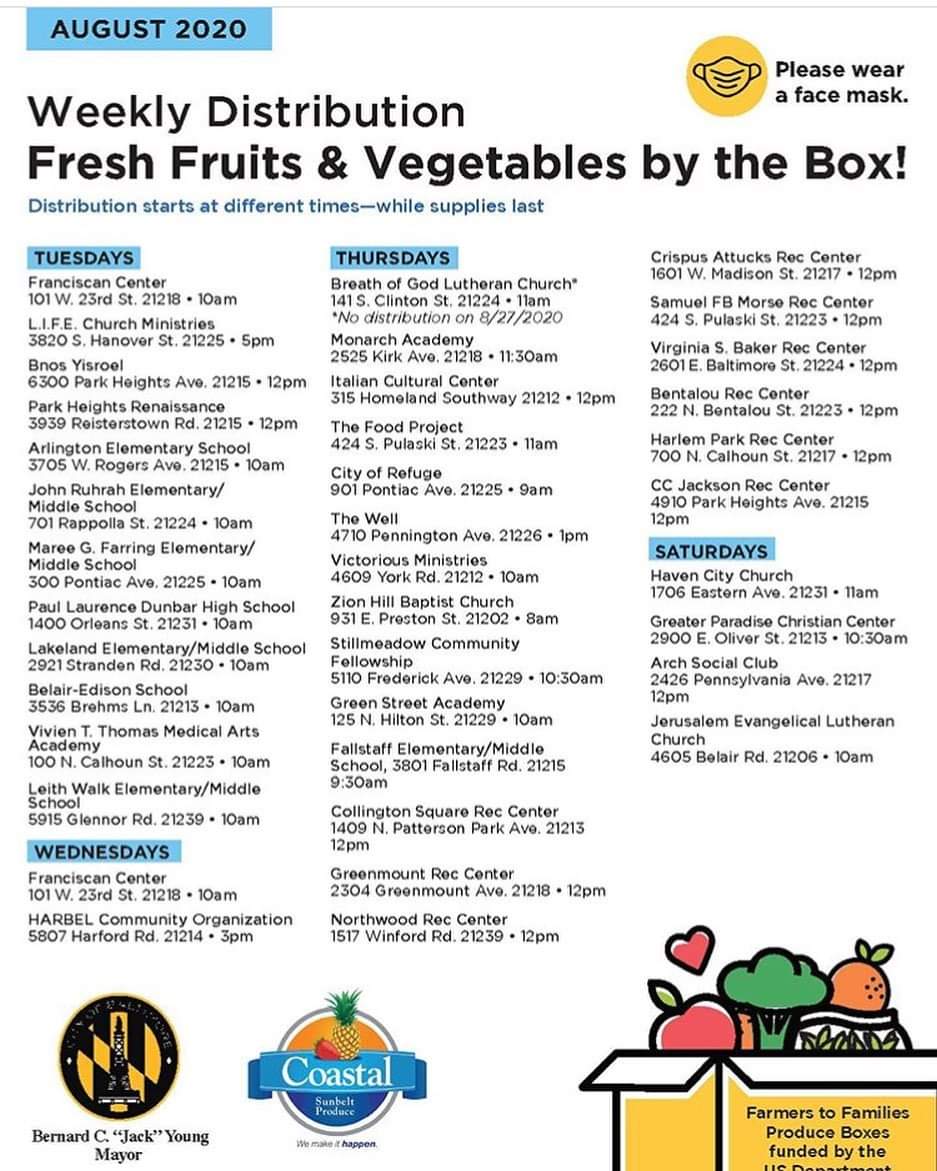
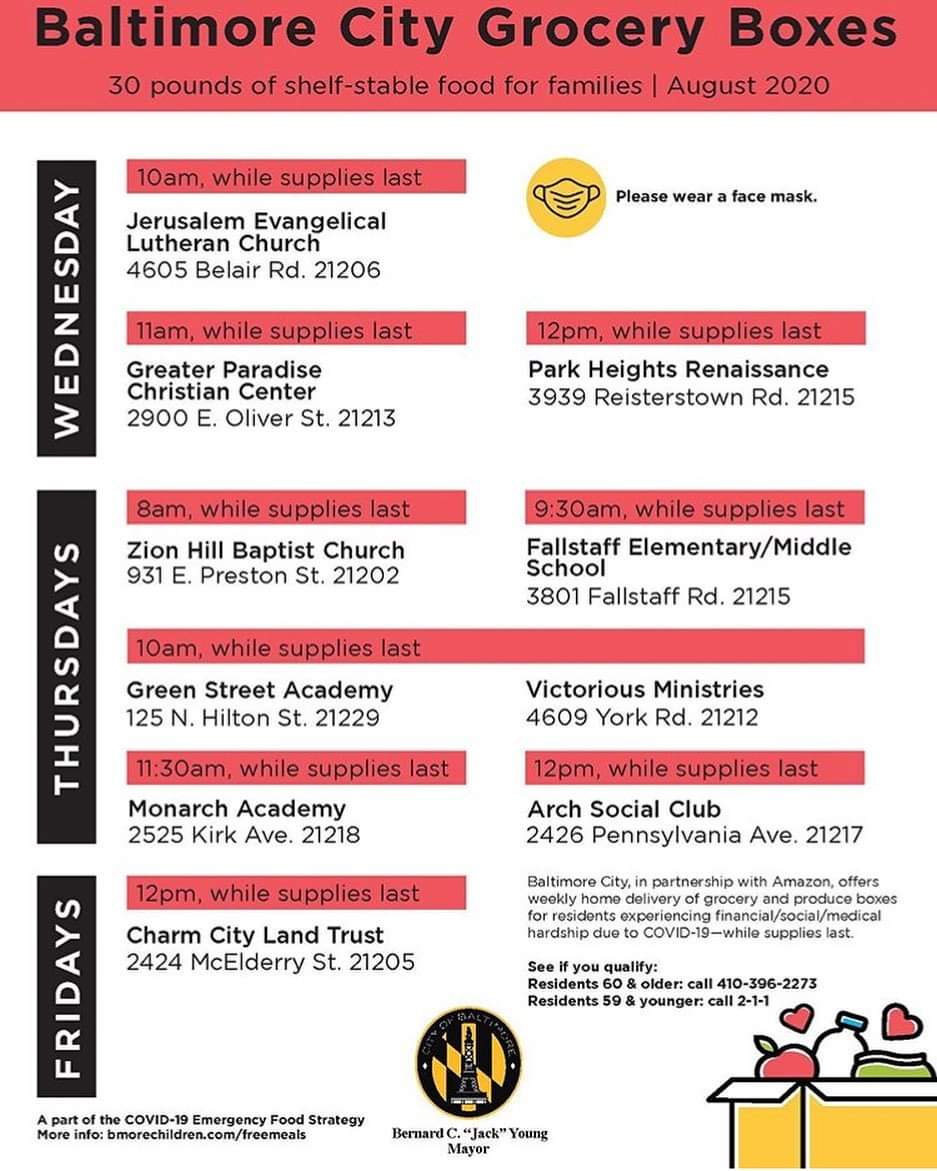
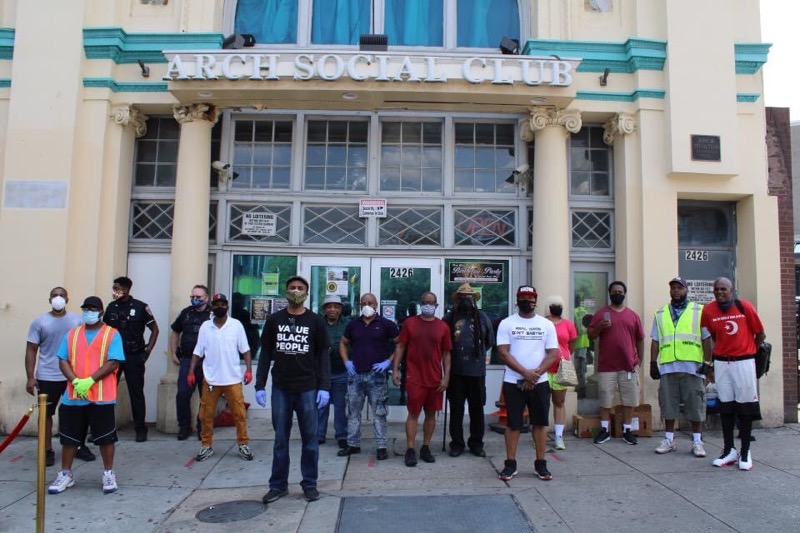
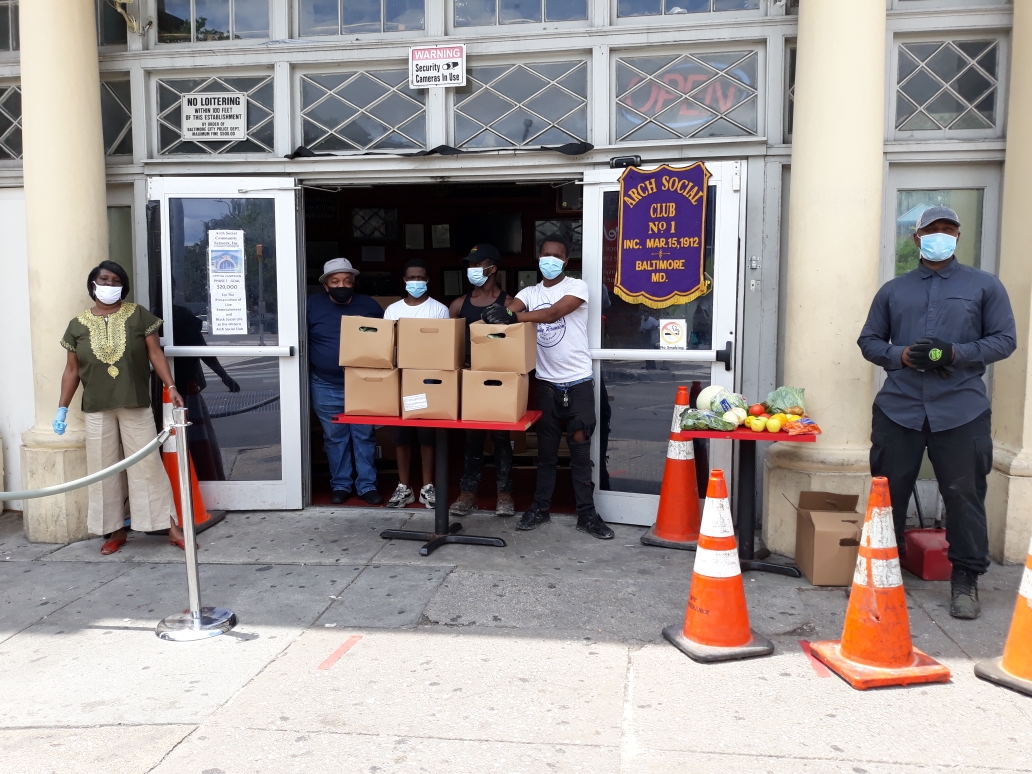
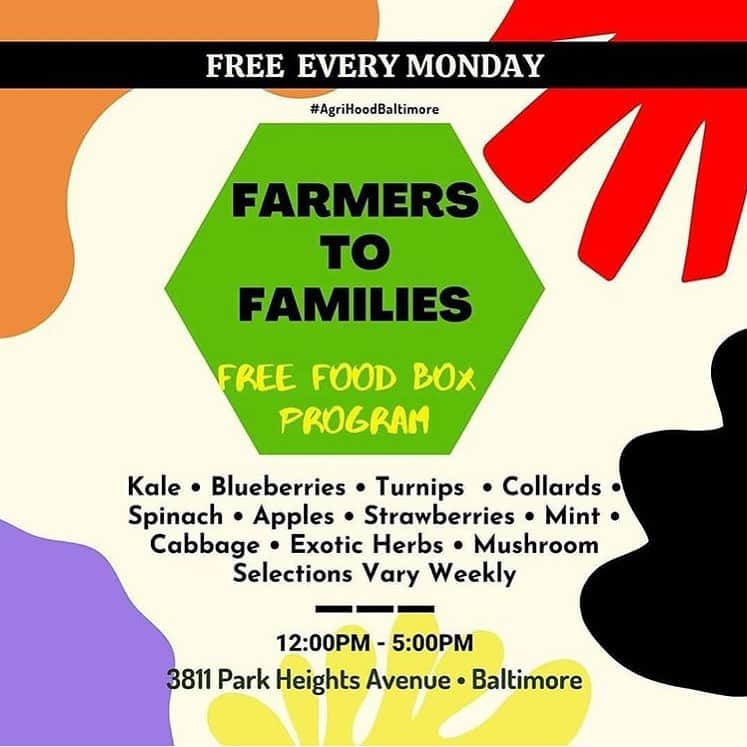

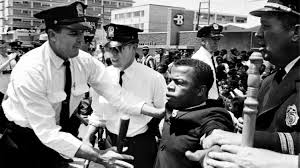
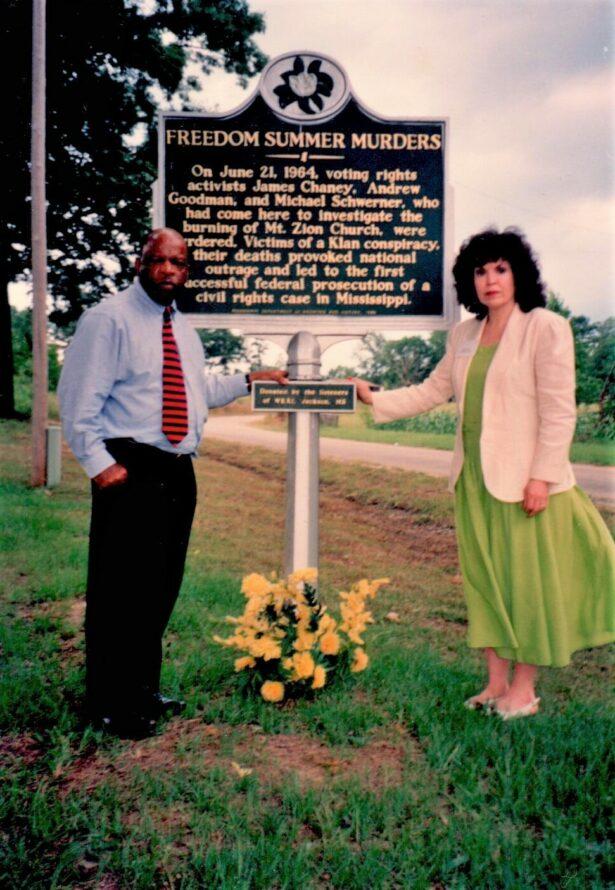
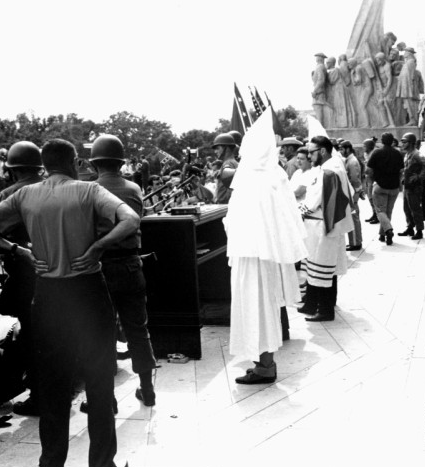
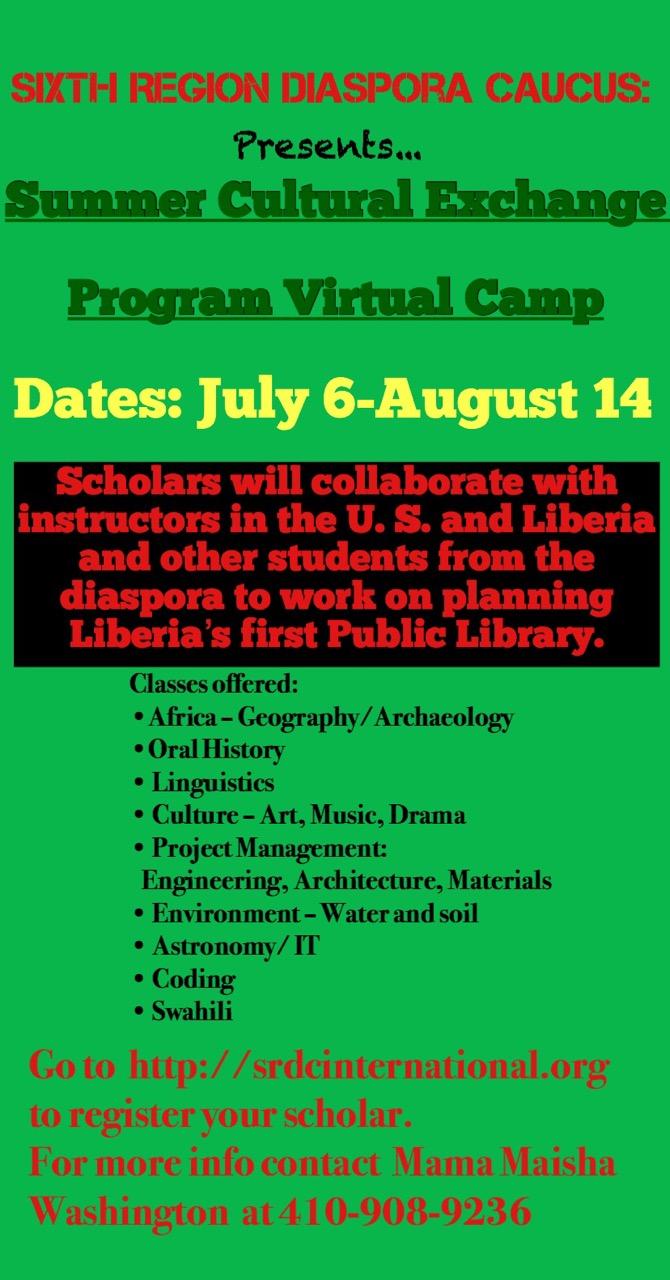 The Sixth Region Diaspora Caucus (SRDC) and Sehwah Liberia encourage concerned activists and members of the Global African Family to Contribute to our Inaugural Summer Cultural Exchange Program.
The Sixth Region Diaspora Caucus (SRDC) and Sehwah Liberia encourage concerned activists and members of the Global African Family to Contribute to our Inaugural Summer Cultural Exchange Program. SEHWAH LIBERIA Inc. &
SEHWAH LIBERIA Inc. &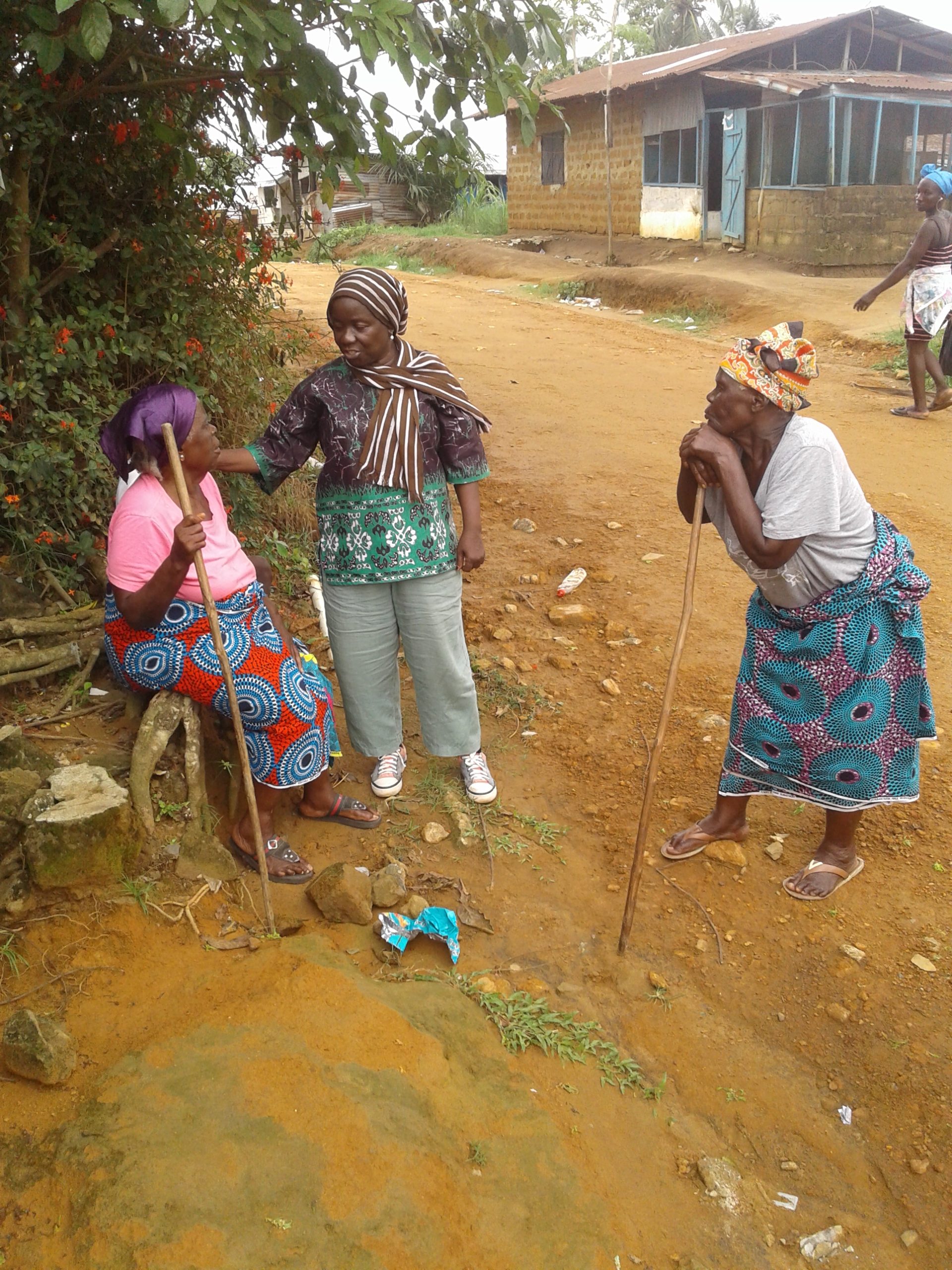 Madam Louise Siaway of Sehwah speaks to community Elders in Liberia during the food distribution effort.
Madam Louise Siaway of Sehwah speaks to community Elders in Liberia during the food distribution effort.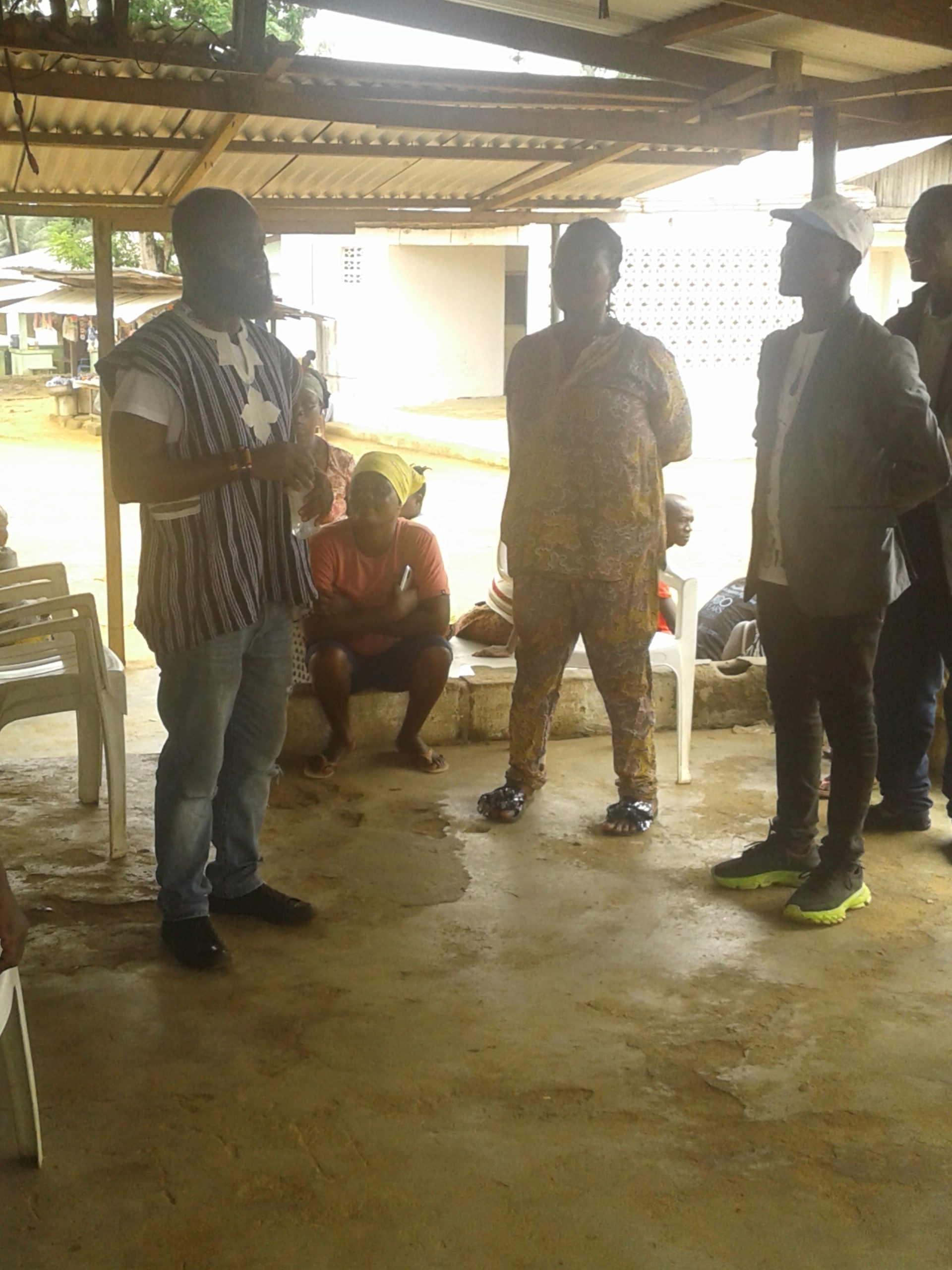 Residents and activists meet during the food distribution effort.
Residents and activists meet during the food distribution effort.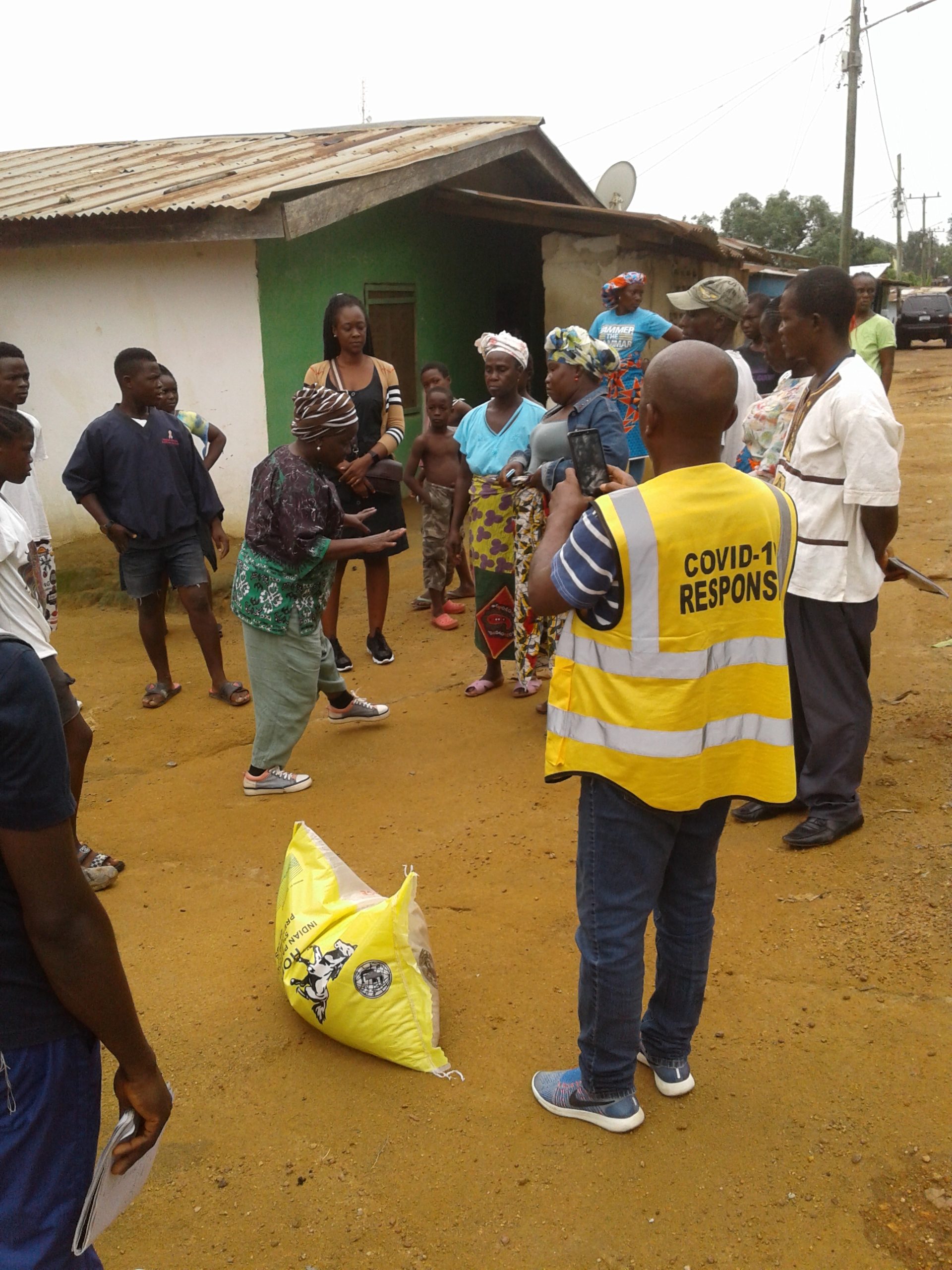 Madam Louise Siaway and members of Sehwah and the COVID-19 Response Team talk with residents during the food distribution effort.
Madam Louise Siaway and members of Sehwah and the COVID-19 Response Team talk with residents during the food distribution effort.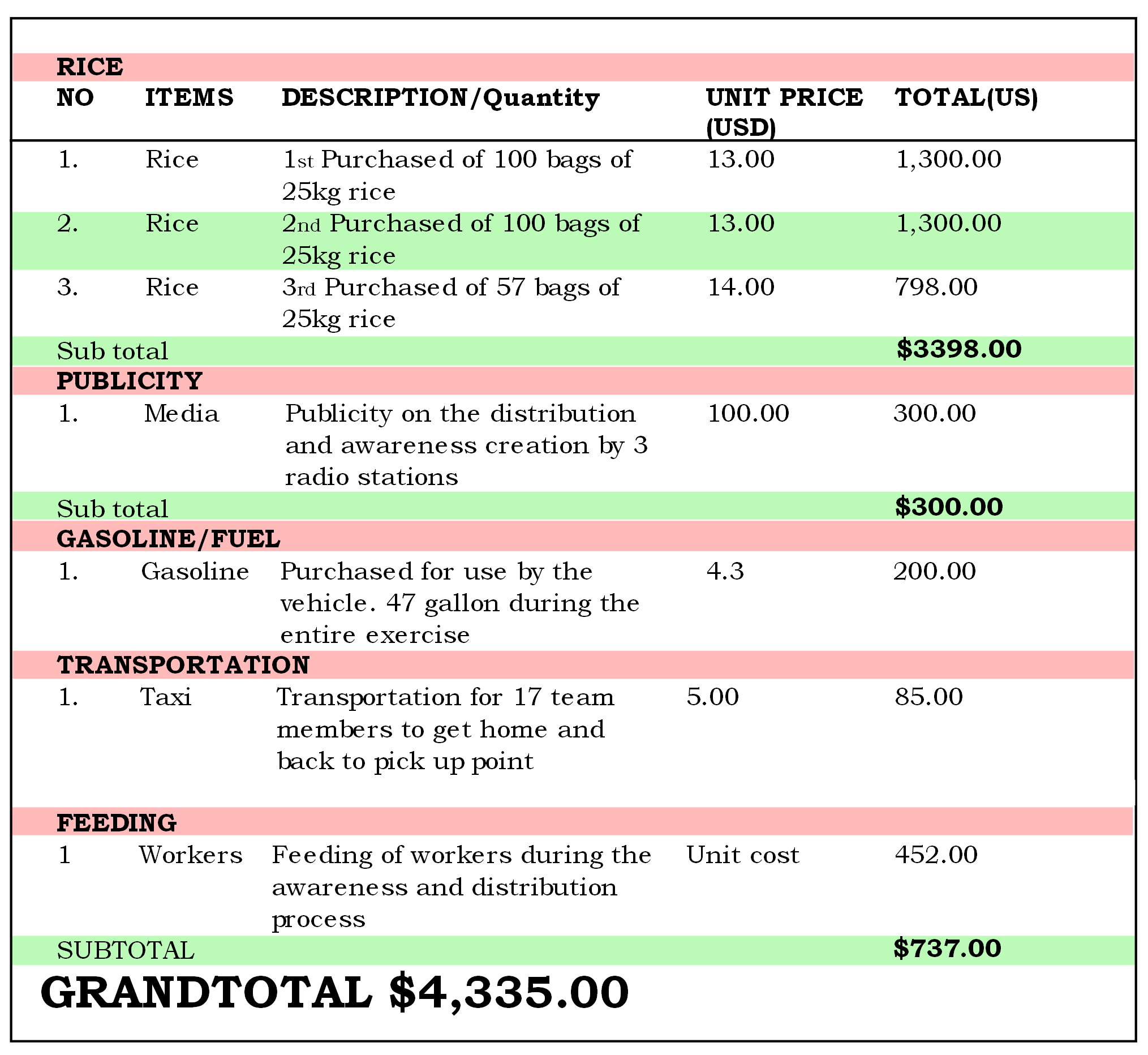
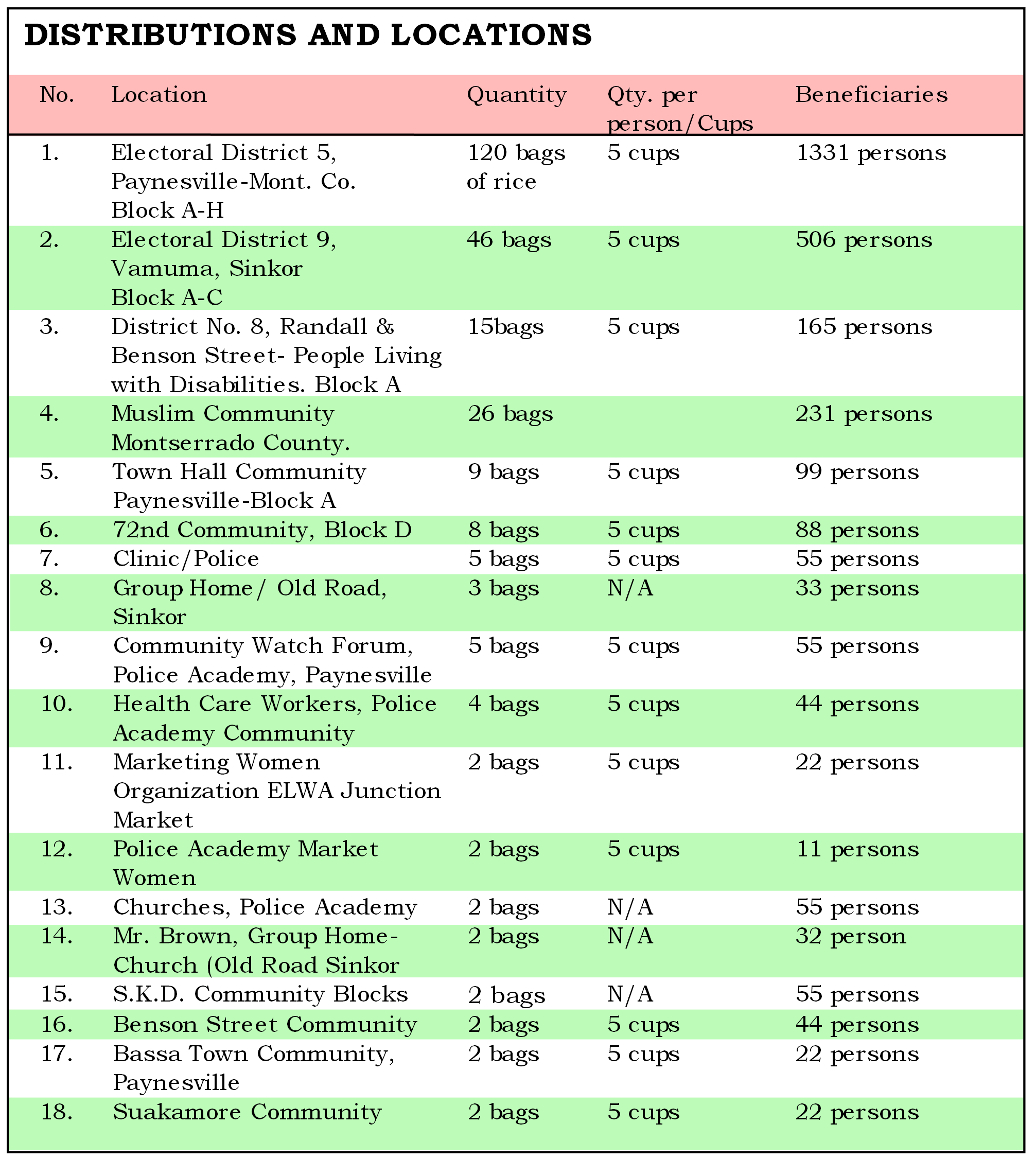
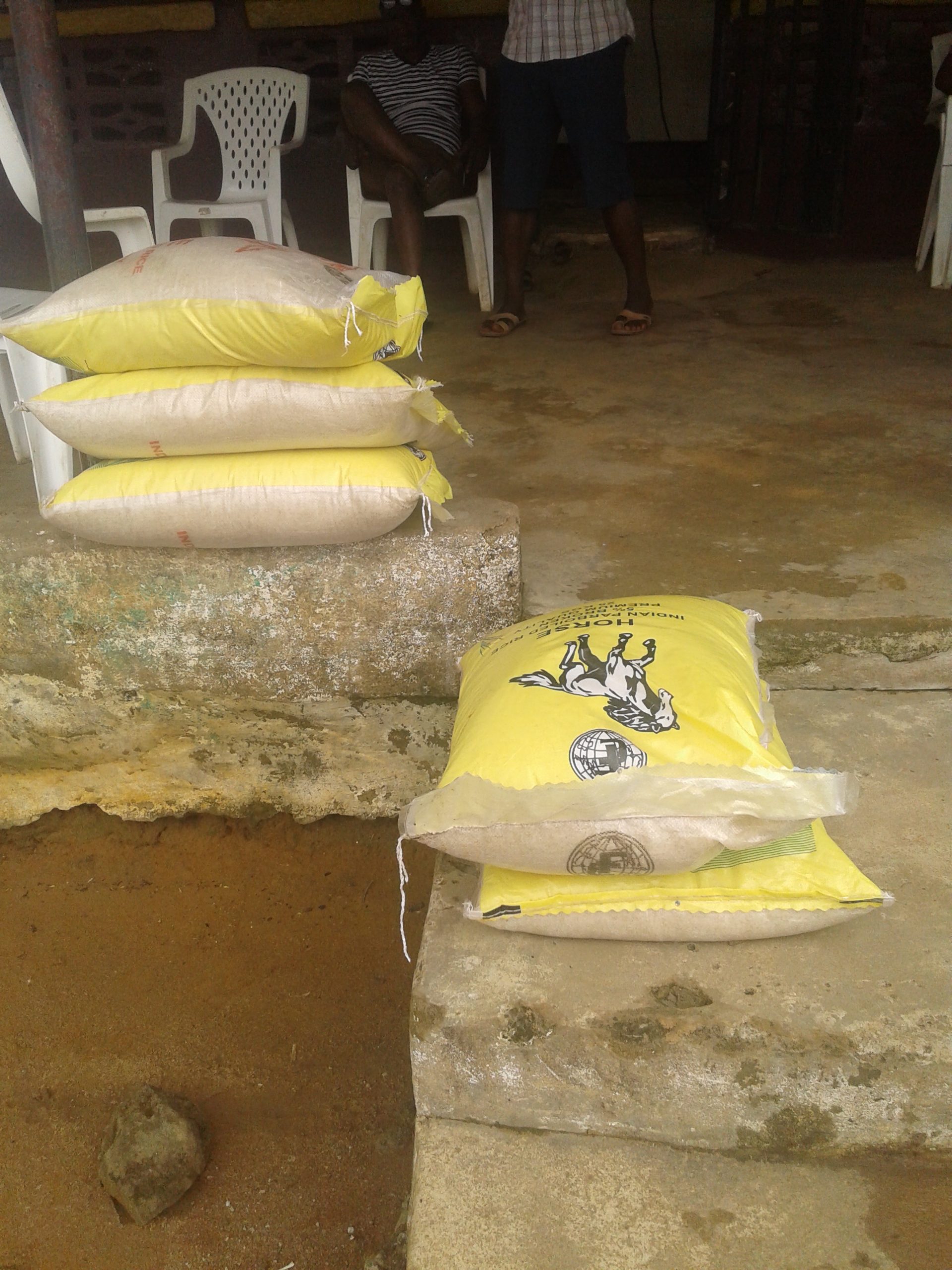 Some of the bags of rice that were distributed along with other food items.
Some of the bags of rice that were distributed along with other food items.